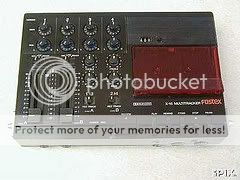I should know better than to reply to someone who dug up a rusty old thread that's best left for the archives, but I couldn't let this one go.

The analogy to chopped tomatoes or pumping gas is erroneous and perjoritive. The big difference is that chopping tomatoes or pumping gas is "unskilled labor". Audio engineering, regardless of whether it's in the analog or digital domain, requires a set of both inherant abilities and learned skills that by definition dictate that not only can everyone not be a good audio engineer, but no one can become one overnight.
The change to digital has not made everything easier, and in fact has made some things harder in some respects. It really comes out to be mostly a wash. For example, editing -
as a process - has become much easier. No more precision cutting and splicing of tape and so forth. On the other hand, the ease with which such editing can be done make it much easier to make a "lazy edit", where the care in the editing choice is is not what it was back in the tape days, and the "uneducated edit", where those with no skill in choosing where and why to edit can go ahead and edit anyway.
That last point illustrates the real concern us "old timers" have with the new technology. Some call it a "resentment", but it's more than that, it's a real concern for the loss of the art of quality, in this case not in motorcycle maintenance but in audio engineering:
The truth is that
the new digital tools have made many things easier for the audio engineer, but they have not made the skill of audio engineering any easier.
This board is daily bombarded with newbs who think the new digital tools are magical black boxes that will do the work for them automatically in much the way that machines will automatically chop tomatoes or dispense gasoline. They think a digital multiband compressor plugin is as easy to use as a microwave oven. Instead of a "popcorn" button, you have a "vocals" preset which will magically "cook" your vocal track for you so it comes out the other end sounding perfect. There was even a thread a couple of weeks ago whenre a guy thought that "mastering software" ment that you could dump your mix into one end and it would come out perfectly "mastered" on the other end. He got upset and wanted to blame the company that sold the software for false advertising when he found out that mastering was a skilled
process that had to be manually orchestrated by someone who knew what they were doing regardless of the software or hardware that was used in the process.
Thanks to the digital revolution there are a greater number of quality audio engineering tools available to a greater number of people than ever before. That's not a bad thing. The bad thing is that the number of people who actually know how to properly use these tools has not increased proportionally. There are more and more high-skill tools falling into the hands of a greater number of untrained users. The great myth is that these tools are The Great Leveler Of The Playing Field, that they will allow these users to become virtual quality audio engineers without actually having to learn how to engineer. In fact, the opposite is true; giving these tools to the unwashed and setting their expectations thusly is little more than a recipe for tens of millions of CD-R drink coasters choking our landfills for the next few generations.
This is why those of us how have been at this for a while may come across as stuffy or "resentful". It's not because we are being replaced by machines, it's because we know that with the spread of the new machines comes a responsibility on our part to try and pass along the knowledge to fill the increasing skills gap, and are constantly meeting resistance from those who believe that the tools themselves make the engineering process as easy as pumping gas.
G.






